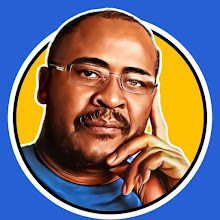Late former Zimbabwe President Canaan Sodindo Banana.
My late father, Canaan Banana, Zimbabwe’s first President at Independence, was more than just a ceremonial head of state. Before independence, he was detained at Wha Wha Prison (Prison Number 188/78), where he sat alongside many of the country’s most prominent nationalist leaders which is a profound testament to his courage and resilience.
Sharing the Cell with Liberation Icons
Despite its reputation as a camp for colonial repression, Wha Wha Prison became a crucible for the liberation struggle housing many of Zimbabwe’s most revered freedom fighters:
• Robert Gabriel Mugabe, later Zimbabwe’s first post-independence executive President, was detained under prison number 176/64 at Wha Wha before being transferred elsewhere.
• Dr Joshua Mqabuko Nkomo, founder of ZAPU and the revered “Father Zimbabwe,” spent time at Wha Wha before being moved to Gonakudzingwa.
• Leopold Takawira, ZAPU’s External Secretary and later ZANU Vice-President, was detained and tortured in Wha Wha and other camps; he later died from injuries sustained in detention.
• Josiah Mushore Chinamano and his wife Ruth Chinamano, both prominent ZAPU leaders, were imprisoned at Wha Wha until 1970 before suffering travel restrictions upon release.
• Jane Lungile Ngwenya, a stalwart of the struggle and later ZAPU women’s leader, was detained at Wha Wha from 1964 to 1970 and became part of an internal detainee governance system focused on education and political strategy.
• Others who shared this crucible included Enos Nkala, Sydney Malunga, Fletcher Dulini Ncube, Mark Nziramasanga, Robert Mubayiwa Marere, Rido Mpofu, Chenjerai Hunzvi, and Naison Khutshwekhaya Ndlovu and all detainees whose stories of defiance varied but who shared the same spirit of resistance.
Why This Matters
When detractors describe my father’s role as purely ceremonial, they ignore the reality of sacrifice, strategic thought, and sacrifice behind those cell bars. Being labeled “ceremonial” cannot obscure the fact that he and the men and women detained with him risked their freedom, families, and lives for Zimbabwe’s liberation.
The struggle wasn’t just fought in the bush; it was fought in places like Wha Wha where political prisoners transformed detention into a political university. There, they educated one another, developed governance frameworks, and preserved unity across party lines even in the most adverse conditions.
The Courage Behind the History
My father shared space with leaders who went on to shape the nation, not as ceremonial heads, but as visionary actors of change. Many of them paid a high personal price. Yet today, more than 40 years after independence, some of those same systems and laws he opposed are still being wielded to oppress citizens.
That history is not something to romanticize uncritically, but neither should it be dismissed. It’s upon that legacy of real sacrifice and conviction that we assess our present, and chart a better future.
Conclusively
That said, we can no longer afford to romanticize the past.
Over 40 years after independence, many of the struggles we now face are not the remnants of colonialism, but the result of poor leadership from some of the very liberators who once promised us freedom. The painful truth is they have become the gatekeepers of the same oppressive systems they fought against.
And after all this time, it’s now clear we cannot expect ZANU PF to reform. The party has mutated into a system of governance that closely resembles an organized criminal enterprise and one that maintains power through fear, repression, and manipulation. It uses inherited colonial laws not to liberate, but to silence and punish its own people.
As his son, I wish I could follow in my father’s political footsteps with pride. However I can’t do so blindly, because this is no longer the party that gave birth to Zimbabwe. What exists today is a far cry from the vision of inclusive liberation.
For me real patriotism today means choosing truth over nostalgia, and justice over loyalty to broken systems. Such unkind truths often come with reprisals.However despite the risks, I still hold onto hope that freedom of speech has a place in our beloved Zimbabwe regardless of the harsh socioeconomic and political conditions we face.
Without space for truth, there can be no healing. Without dialogue, no real progress.


No comments:
Post a Comment